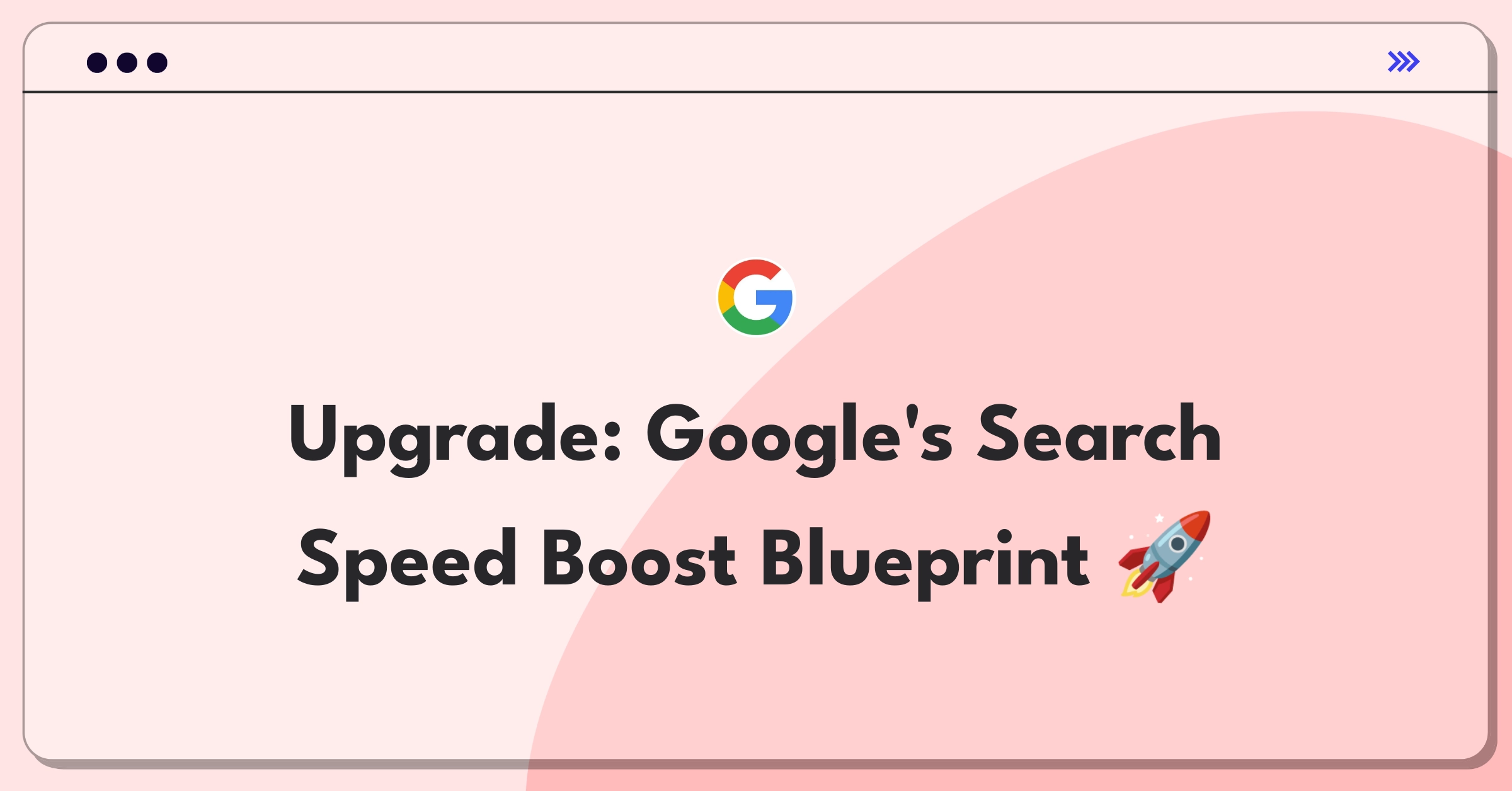Making Google Faster: A Technical Product Strategy
To make Google faster, we'll focus on optimizing the search algorithm, enhancing infrastructure scalability, and implementing advanced caching techniques, while balancing performance improvements with user experience and resource constraints.
Introduction
The challenge of making Google faster is a complex technical problem that touches on multiple aspects of system architecture, algorithm optimization, and infrastructure scalability. This task is critical not only for maintaining Google's competitive edge but also for improving user experience and satisfaction. In addressing this challenge, we'll need to consider the intricate balance between speed, accuracy, and resource utilization.
I'll approach this problem through the following steps:
- Clarify the technical requirements
- Analyze the current state and challenges
- Propose technical solutions
- Develop an implementation roadmap
- Establish metrics and monitoring
- Manage risks
- Outline a long-term technical strategy
Tip
Throughout this process, we'll need to ensure that our technical solutions align with Google's broader business objectives, such as maintaining search quality and supporting the vast array of Google services.
Step 1
Clarify the Technical Requirements (3-4 minutes)
Key Technical Areas to Clarify:
For each question, I'll provide:
- Why this technical aspect matters
- A hypothetical answer
- The impact on our technical approach
For example, regarding Product Context:
This matters because the scope will significantly influence our technical strategy. If we're focusing solely on Google Search, we can dive deep into search algorithm optimizations. If it's the entire ecosystem, we'll need a broader approach.
Hypothetical answer: "Let's focus primarily on Google Search, as it's the core product and improvements here will have the most significant impact."
Impact: This allows us to concentrate our efforts on search algorithm efficiency, index optimization, and search-specific infrastructure improvements.
Tip
Based on these clarifications, I'll assume we're primarily focusing on Google Search, with consideration for how improvements might benefit the broader Google ecosystem.
Subscribe to access the full answer
Monthly Plan
The perfect plan for PMs who are in the final leg of their interview preparation
$99 /month
- Access to 8,000+ PM Questions
- 10 AI resume reviews credits
- Access to company guides
- Basic email support
- Access to community Q&A
Yearly Plan
The ultimate plan for aspiring PMs, SPMs and those preparing for big-tech
$99 $33 /month
- Everything in monthly plan
- Priority queue for AI resume review
- Monthly/Weekly newsletters
- Access to premium features
- Priority response to requested question


.png)